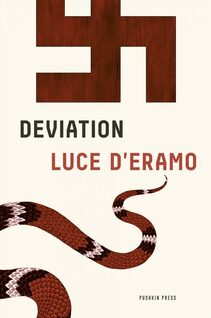Godsend by John Wray
Having cut her hair and bound her breasts, she boards a flight from California to Dubai and on to Karachi, then takes a bus Peshawar and on to a village beyond. There, along with her friend, Decker, who has family in the area, she enrols at a madrasa and takes a new name. Although both are a mixture of piety, defiance, idealism and adolescent bravado, Aden seems more suited to their new life than he.
But diligent student as she is, she wants to do more than recite the suras. Before long, she’s crossing the border and beginning her military training in Afghanistan. Like the bacha posh traditional to the area (see The Pearl That Broke Its Shell) and Constance, who fights as a man in the American Civil War (see Neverhome), Aden manages to ‘pass’, although she has an extra anxiety beyond the harsh terrain, trigger-happy fellow-fighters and American drone attacks.
For a white Western male to take a female character into the ‘other’ side of the War on Terror suggests either arrogance or naivety. Fortunately, the author of The Lost Time Accidents is guilty of neither: the story is even-handedly told, and he’s done his research into the geography and religion too. Or as far as I can tell, being expert in neither, although I did have the audacity to include a story in my collection, Becoming Someone, about a Muslim anxious about timing his prayers correctly on a long-haul flight. (Since you’re asking, although set early this century, it draws on my own experience on a flight from Dhaka, before Islam became a dirty word in the West.)
Glad to say I’m adding Godsend to this year’s favourites. Thanks to Canongate for my review copy.
Deviation by Luce d’Eramo translated by Anne Milano Appel
It could be repression, it could be the drugs she’s taking, it could be the extra effort each day requires but, over three decades, she barely thinks of the time she was confined, not by her body, but by the barbed wire of various Nazi camps. At eighteen, against the wishes of her bourgeois parents, she left her comfortable home in Italy to volunteer at a German labour camp. There, outraged by the conditions, especially for the Easterners – Russians and Polish – she helps to organise a strike.
Her comrades might be executed, but circumstances lead to Luce being repatriated to Italy. Unwilling to return to her parents, and the privileges of her class, she destroys her documents and falls in with a group of deportees destined for Dachau concentration camp.
Branded as an autobiographical novel, Deviation, is a dispassionate account of living with disability and of the fight for survival within various types of Nazi camps. It seems closer to memoir than fiction with, for me, insufficient distance between narrator and author to allow the reader her own interpretation of events. Luce d’Eramo’s musings on her motivations to forget read like essays about a book that might have been, and I’d have welcomed more space to explore her early Fascism and the transformation she undergoes.
A bestseller when first published in Italian in 1979, this new English translation came to me courtesy of Pushkin Press.
Which brings me to Shemima Begum and the question of her citizenship. Should someone who left England for the caliphate in Syria and ISIS be allowed back when it collapses, even if she expresses no regrets, justifies egregious terrorist acts against innocent concert goers and challenges the authorities to find evidence against her? Read on.
























 RSS Feed
RSS Feed





















